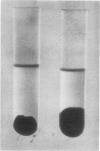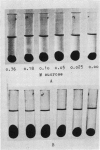Abstract
Freezing of chloroplast membranes uncouples photophosphorylation from electron transport and inactivates the light-dependent and thiol-requiring ATPase, conformational changes and the light-dependent proton uptake. All of these energy requiring activities can be protected against inactivation by addition of sucrose prior to freezing. The direct relation to photophosphorylation is demonstrated by the quantitatively similar response of photophosphorylation and the other activities to sucrose protection. Salts interfere with the protection afforded by sucrose.
In contrast to the light-dependent ATPase, the ATPase activities which are unmasked by digestion with trypsin show no significant response to freezing. Similarly, the chloroplast coupling factor, which is released from the membranes by ethylenediamine tetraacetic acid treatment, survives freezing. The membranes, which are depleted of the factor, are damaged by freezing.
The results suggest that uncoupling of phosphorylation from electron transport is caused by interference of freezing with a structure involved in the formation of a non-phosphorylated high energy state of chloroplasts. They are best explained on the basis of Mitchell's theory of phosphorylation. Since freezing alters the permeability properties of chloroplast membranes—frozen membrane vesicles no longer function as osmometers—it may be assumed that freezing uncouples phosphorylation from electron transport by preventing the formation of a pH gradient across the vesicle membranes owing to proton leakage through the membranes. From the results, the basic injury caused by freezing appears to consist in the alteration of permeability properties of biological membranes due to the dehydration which accompanies freezing.
Full text
PDF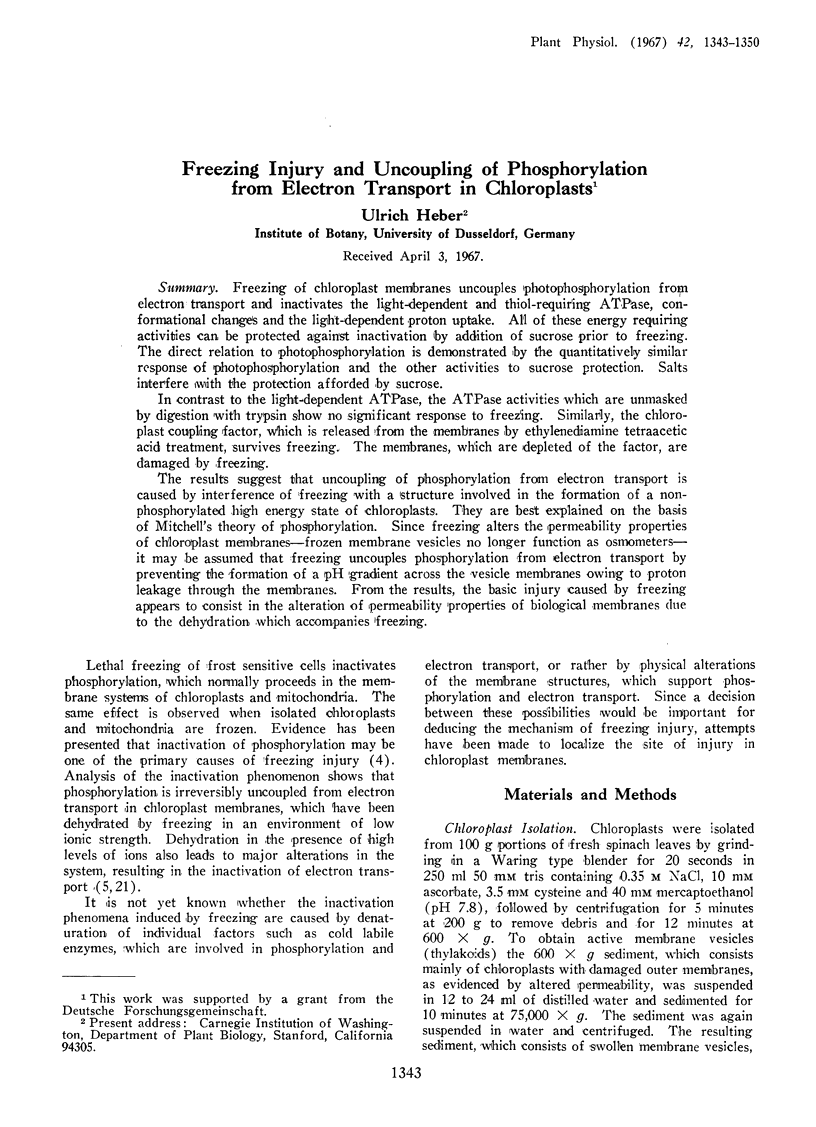
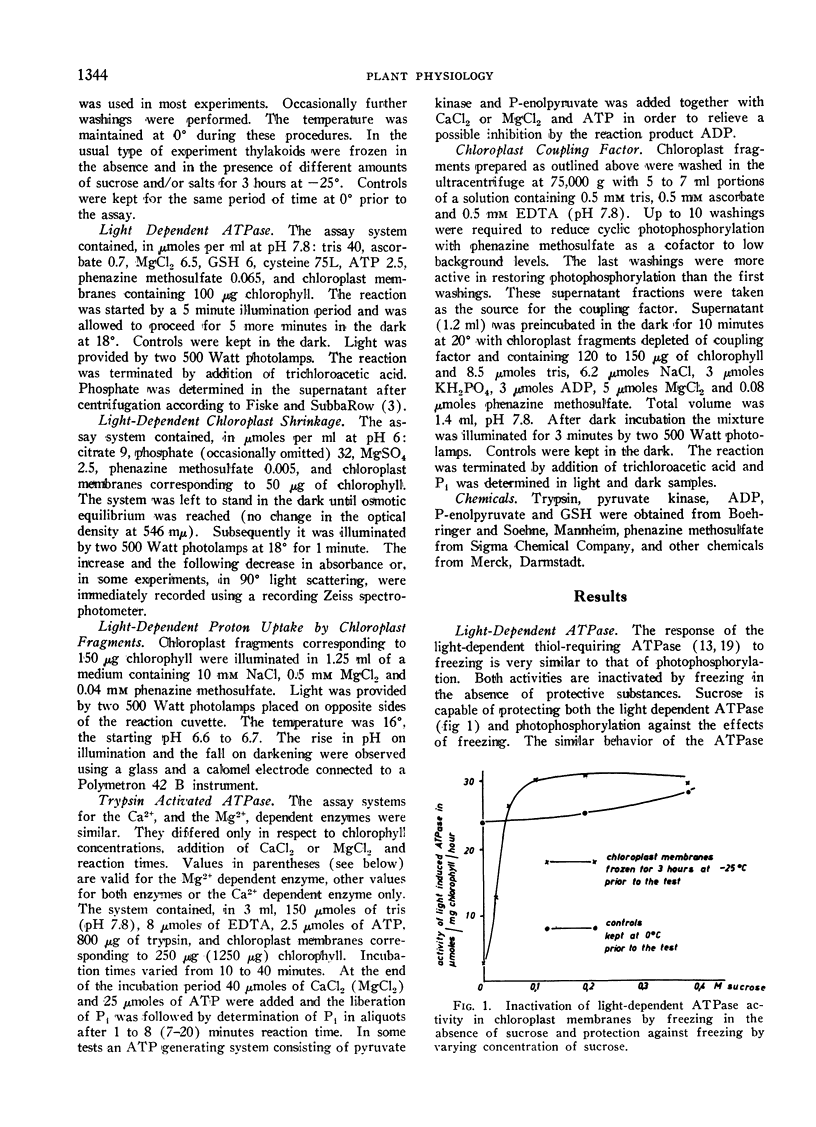
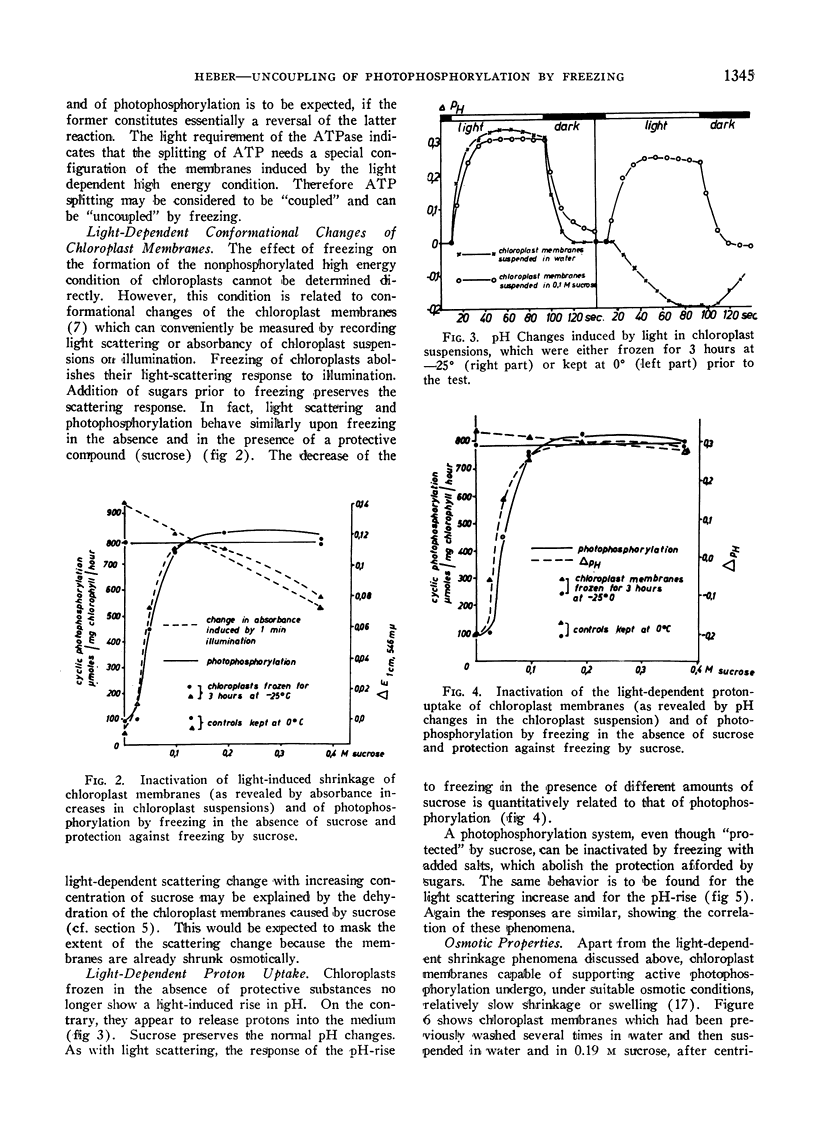
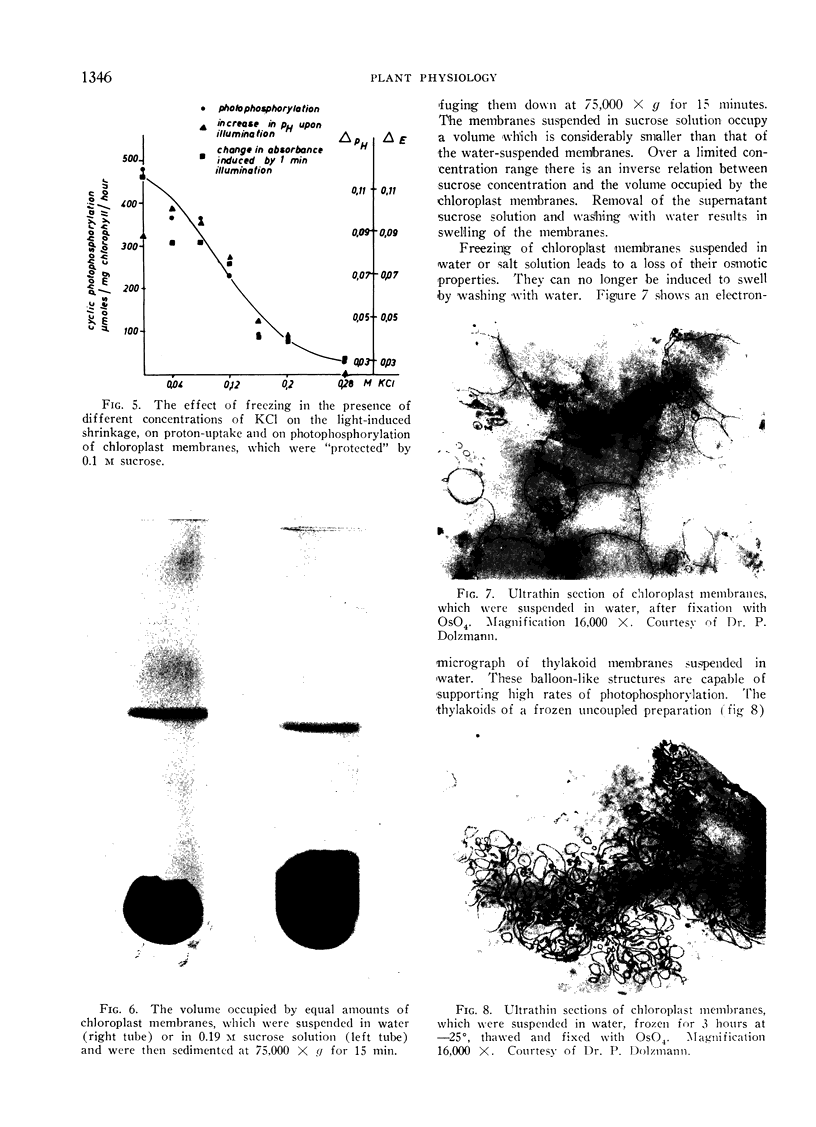
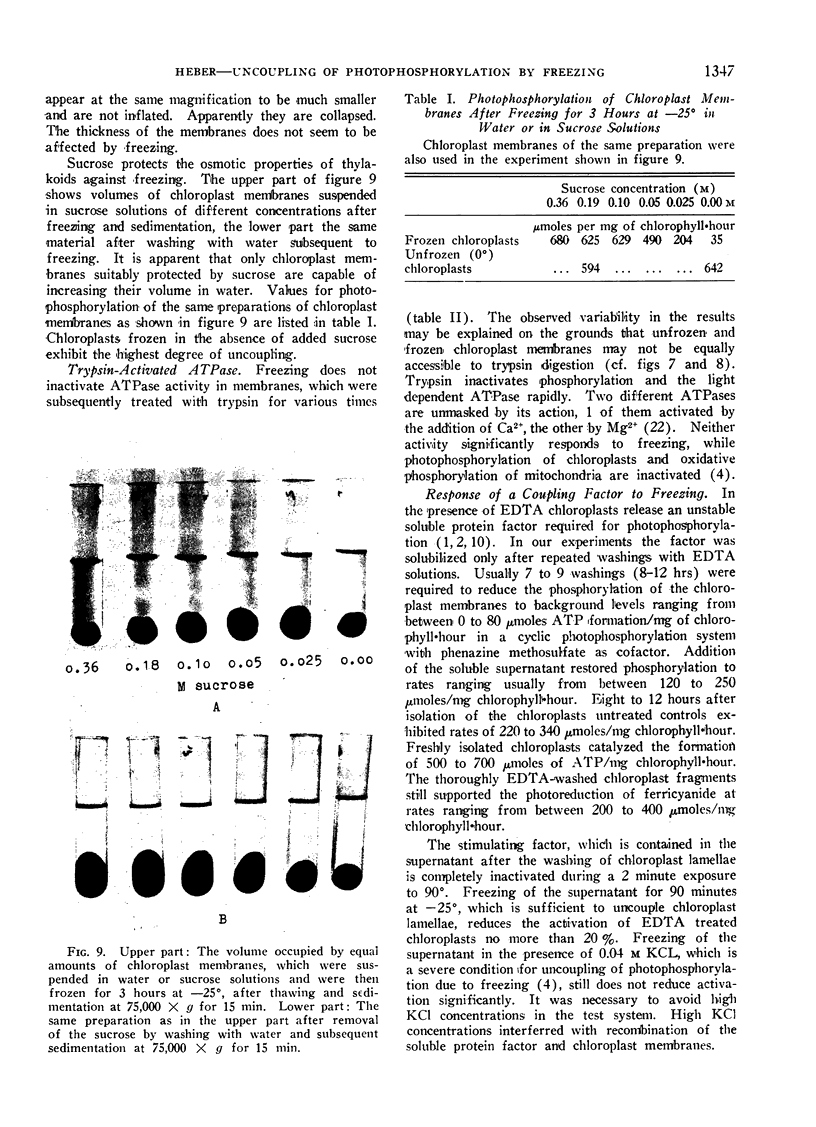
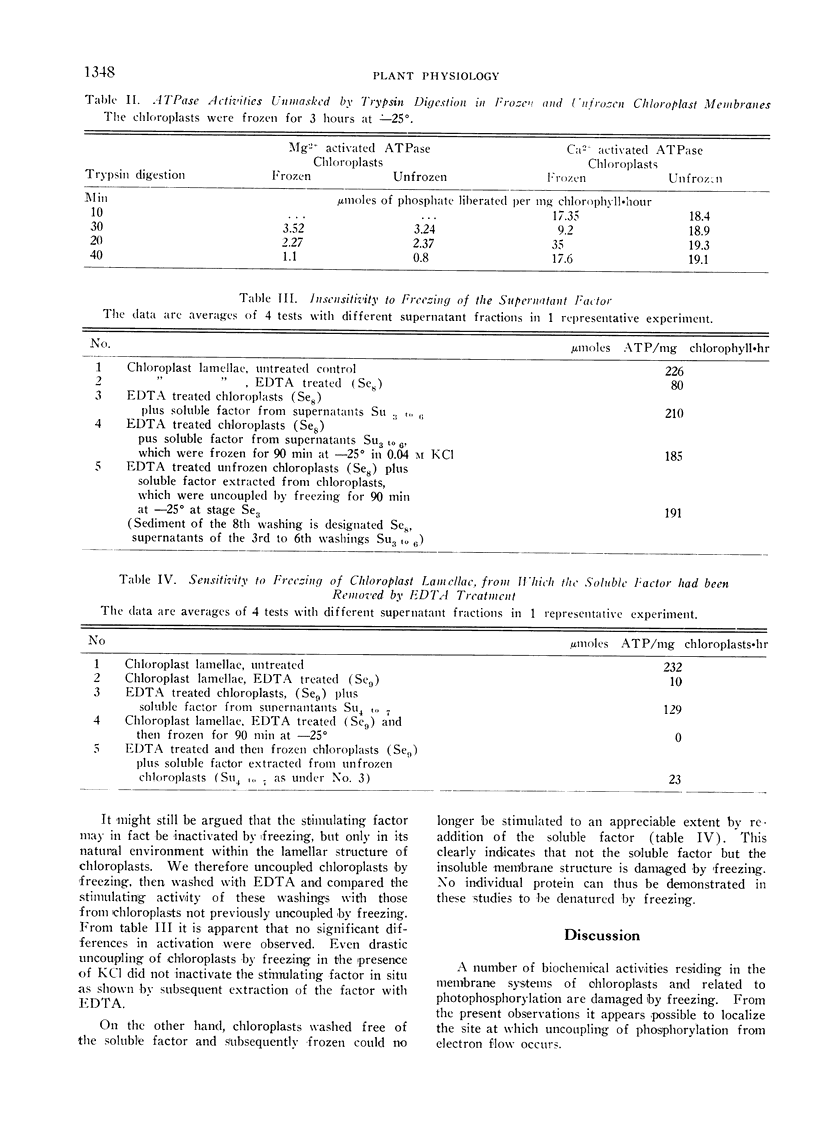
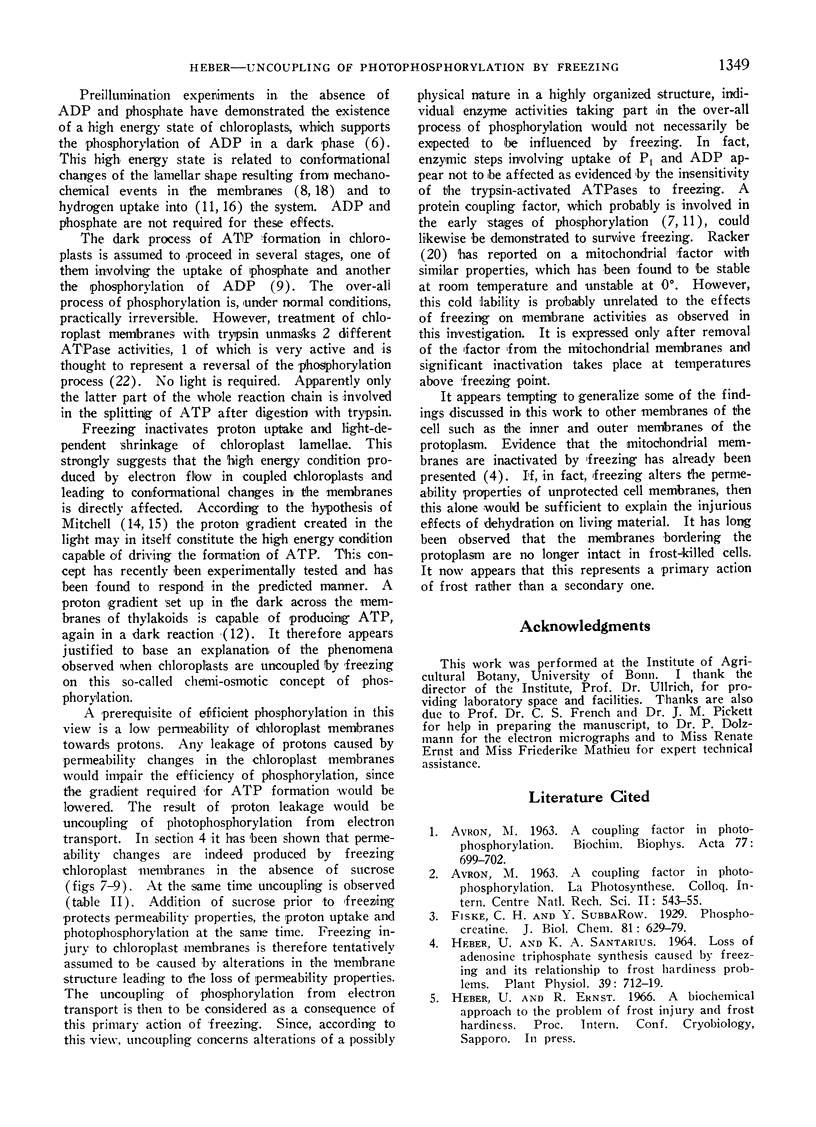
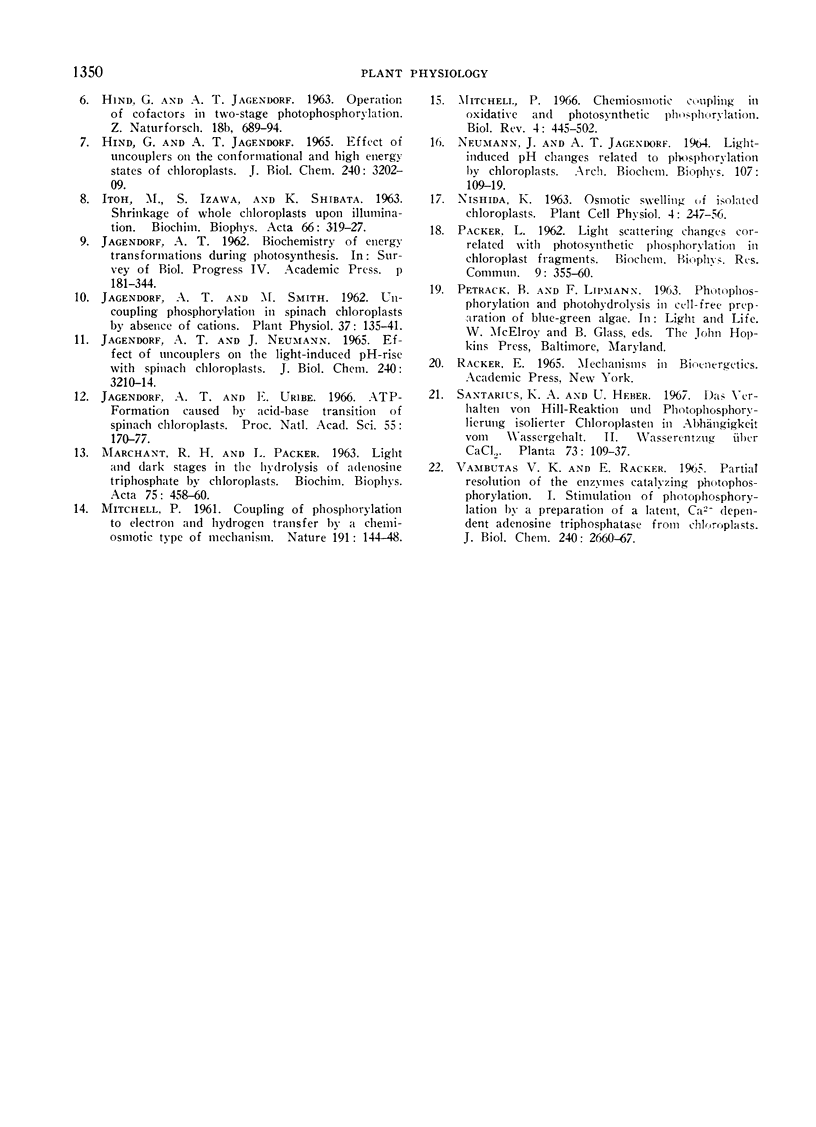
Images in this article
Selected References
These references are in PubMed. This may not be the complete list of references from this article.
- HIND G., JAGENDORF A. T. EFFECT OF UNCOUPLERS ON THE CONFORMATIONAL AND HIGH ENERGY STATES OF CHLOROPLASTS. J Biol Chem. 1965 Jul;240:3202–3209. [PubMed] [Google Scholar]
- Heber U. W., Santarius K. A. Loss of Adenosine Triphosphate Synthesis Caused by Freezing and Its Relationship to Frost Hardiness Problems. Plant Physiol. 1964 Sep;39(5):712–719. doi: 10.1104/pp.39.5.712. [DOI] [PMC free article] [PubMed] [Google Scholar]
- JAGENDORF A. T., NEUMANN J. EFFECT OF UNCOUPLERS ON THE LIGHT-INDUCED PH RISE WITH SPINACH CHLOROPLASTS. J Biol Chem. 1965 Jul;240:3210–3214. [PubMed] [Google Scholar]
- Jagendorf A. T., Smith M. Uncoupling Phosphorylation in Spinach Chloroplasts by Absence of Cations. Plant Physiol. 1962 Mar;37(2):135–141. doi: 10.1104/pp.37.2.135. [DOI] [PMC free article] [PubMed] [Google Scholar]
- Jagendorf A. T., Uribe E. ATP formation caused by acid-base transition of spinach chloroplasts. Proc Natl Acad Sci U S A. 1966 Jan;55(1):170–177. doi: 10.1073/pnas.55.1.170. [DOI] [PMC free article] [PubMed] [Google Scholar]
- MITCHELL P. Coupling of phosphorylation to electron and hydrogen transfer by a chemi-osmotic type of mechanism. Nature. 1961 Jul 8;191:144–148. doi: 10.1038/191144a0. [DOI] [PubMed] [Google Scholar]
- Mitchell P. Chemiosmotic coupling in oxidative and photosynthetic phosphorylation. Biol Rev Camb Philos Soc. 1966 Aug;41(3):445–502. doi: 10.1111/j.1469-185x.1966.tb01501.x. [DOI] [PubMed] [Google Scholar]
- NEUMANN J., JAGENDORF A. T. LIGHT-INDUCED PH CHANGES RELATED PHOSPHORYLATION BY CHLOROPLASTS. Arch Biochem Biophys. 1964 Jul;107:109–119. doi: 10.1016/0003-9861(64)90276-0. [DOI] [PubMed] [Google Scholar]
- VAMBUTAS V. K., RACKER E. PARTIAL RESOLUTION OF THE ENZYMES CATALYZINE PHOTOPHOSPHORYLATION. I. STIMULATION OF PHOTOPHOSPHORYLATION BY A PREPARATION OF A LATENT, CA++- DEPENDENT ADENOSINE TRIPHOSPHATASE FROM CHLOROPLASTS. J Biol Chem. 1965 Jun;240:2660–2667. [PubMed] [Google Scholar]




